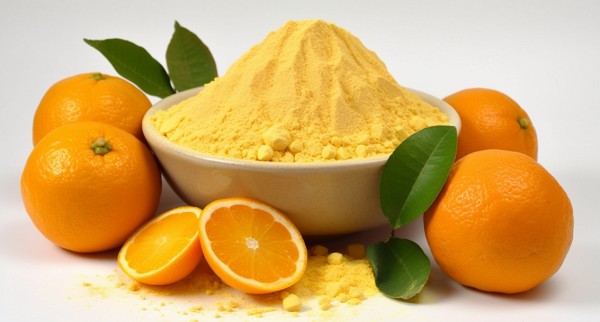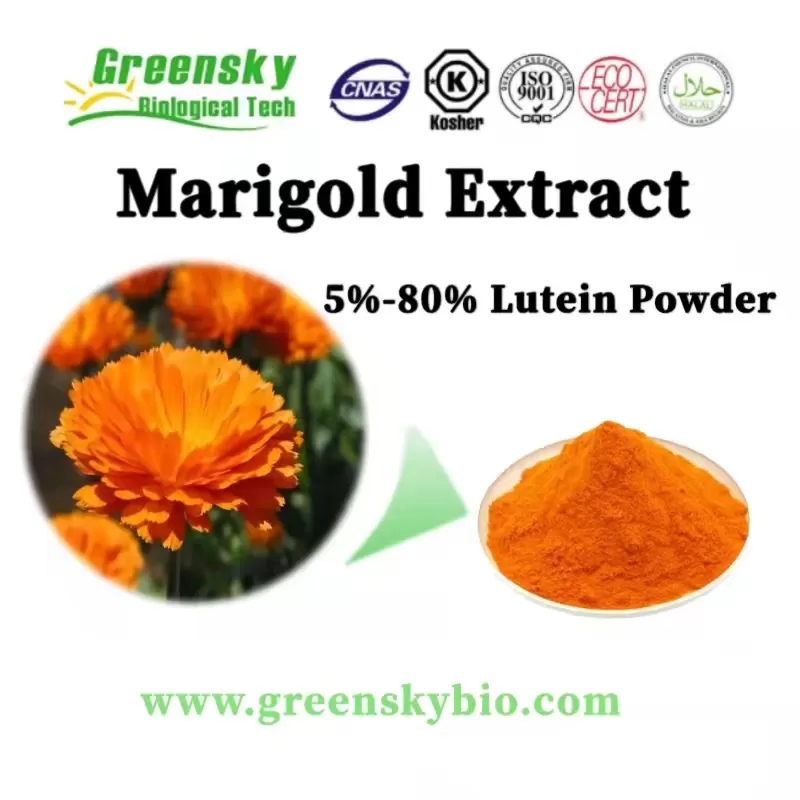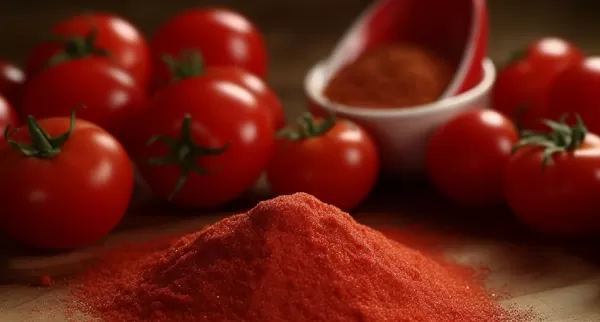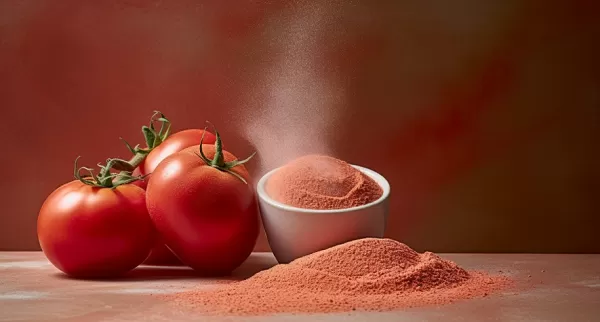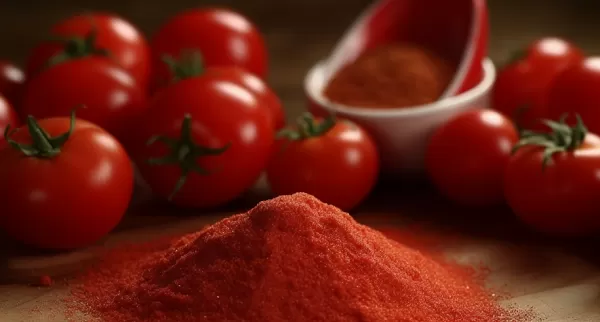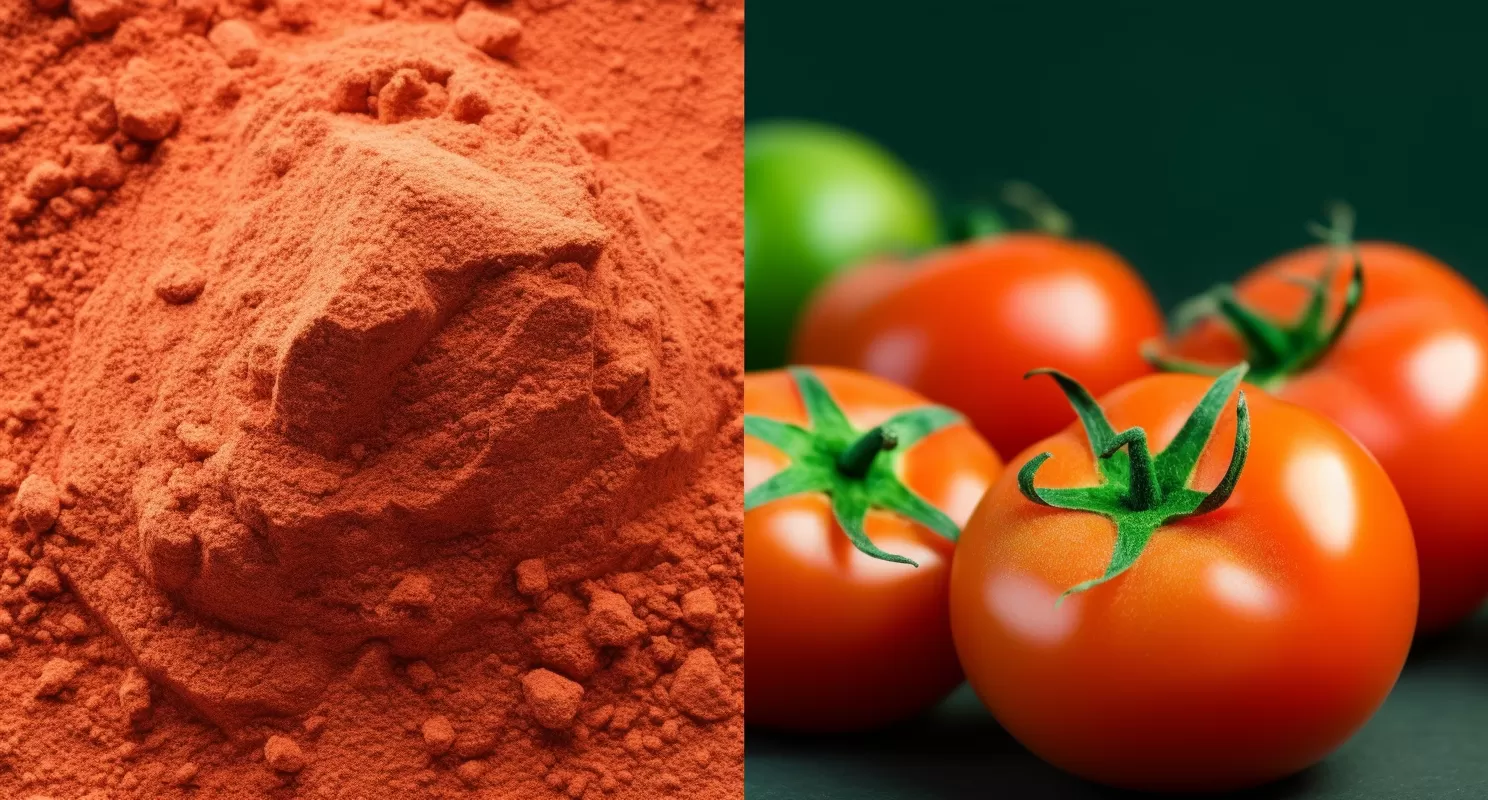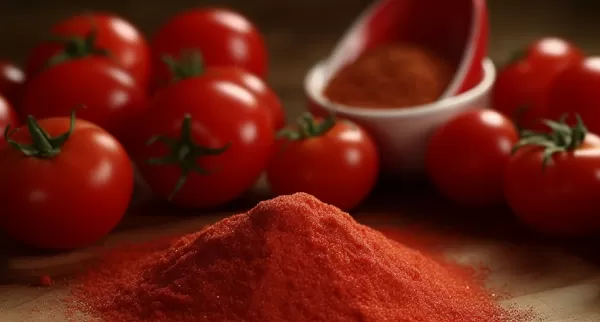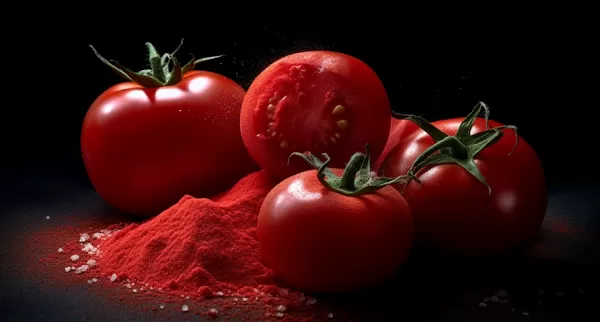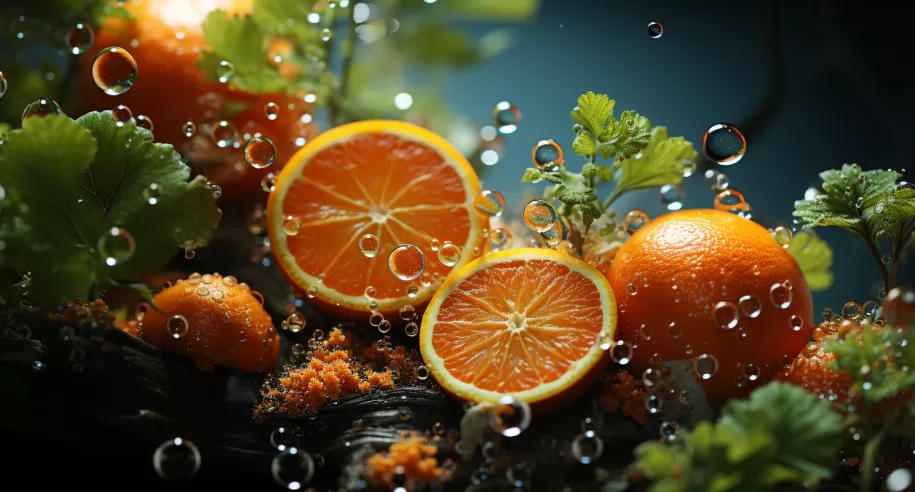- 0086-571-85302990
- sales@greenskybio.com
The efficacy and precautions of lycopene: what foods should not be eaten with it?
2023-06-01

Lycopene is a powerful antioxidant commonly found in tomatoes and other red fruits and vegetables. Multiple studies have demonstrated its many benefits in human health, from preventing chronic disease to improving heart health and even fighting cancer. However, the effectiveness of Lycopene depends not only on how much you eat, but also on how you consume it and the foods it interacts with. In this article, we discuss in detail the effects of Lycopene, and some foods and substances that may affect its effects.
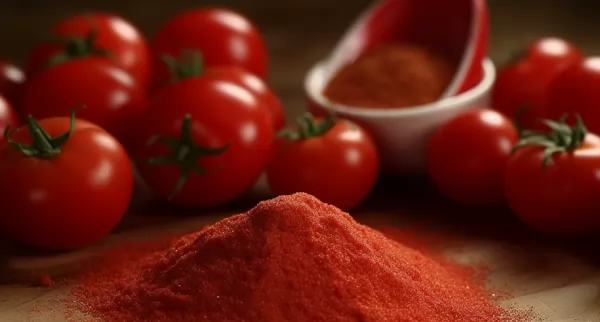
II. Efficacy of Lycopene
Lycopene, also known as phytoene, is the most abundant pigment in tomatoes. According to a study in the American Journal of Clinical Nutrition, lycopene is a powerful antioxidant that is effective in neutralizing free radicals in the body that can degrade during oxidative stress. damage to cells [1].
Additionally, a study published in the Journal of Nutritional Biochemistry found that lycopene may help protect against a range of chronic diseases, including heart disease and cancer [2]. Dr. Edward Giovannucci, a professor at Harvard Medical School, wrote in his paper: "There is sufficient evidence to show that lycopene has a significant effect in preventing prostate cancer, breast cancer, and lung cancer." [3].
III. Food Interactions with Lycopene
While the health benefits of lycopene are widely recognized, much remains to be learned about how food interacts with nutrients. For example, the book "Bioactive Compounds and Health" mentions that the intake of certain foods and substances may reduce the absorption of lycopene, thereby reducing its effects in humans [4].
Therefore, it is important to be aware of and avoid these foods and substances that may affect the effectiveness of lycopene. In the sections that follow, we discuss these foods and substances in detail and provide some dietary recommendations for optimizing lycopene intake.
IV. Foods and substances that should not be taken with lycopene
In many cases, interactions between foods can affect nutrient absorption. Certain foods and substances may decrease the absorption and effectiveness of lycopene, according to a study in the journal Nutrition [5].
First of all, excessive drinking can affect the absorption of lycopene. A study in the journal Alcohol and Alcoholism pointed out that alcohol can inhibit the absorption of lycopene in the intestinal tract, thereby reducing its bioavailability in the body [6].
In addition, certain inorganic substances in food, such as phosphate, may also affect the absorption of lycopene. In a study in the Journal of Nutrition, phosphate was found to prevent lycopene from being absorbed in the gut [7].
V. Dietary Recommendations for Optimizing Lycopene Absorption
Although some foods and substances may reduce the absorption of lycopene, there are some dietary strategies we can use to optimize its absorption. First, a study published in Nutrition Research found that taking lycopene with fat increases its absorption in the gut [8]. This is because lycopene is a fat-soluble substance that needs the help of fat for better absorption.
In addition, lycopene in cooked tomatoes is more easily absorbed by the body than raw tomatoes. A study in the American Journal of Clinical Nutrition noted that lycopene was more bioavailable in cooked tomatoes [9]. Therefore, it may be more beneficial to choose cooked tomato products, such as tomato sauce or stewed tomatoes.
VI. Conclusion
Taking the above discussion together, we can see that lycopene is a powerful antioxidant that can help us prevent chronic disease, improve heart health, and help fight cancer. However, its effectiveness does not depend solely on how much we consume, but is also closely related to our eating habits and food interactions.
Alcohol and inorganic substances in certain foods, such as phosphates, may reduce the absorption and effectiveness of lycopene. Therefore, it is wise to avoid the intake of these foods and substances in the diet as much as possible. On the other hand, we can optimize lycopene absorption through dietary strategies, such as consuming it with fat and choosing cooked tomato products.
Hopefully this article has helped you better understand the importance of lycopene and how to optimize its intake in your diet. Remember, healthy eating is not just about what you eat, but how you eat it. Through reasonable diet matching and choices, we can get the most nutrition from food and enjoy a healthy life.
Quote from above:
[1] Riso P., Visioli F., et al. (2006). "Lycopene and vitamin C concentrations increase in plasma and lymphocytes after tomato intake. Effects on cellular antioxidant protection." American Journal of Clinical Nutrition.
[2] Rao A.V., Rao L.G. (2007). "Carotenoids and human health." Journal of Nutritional Biochemistry.
[3] Giovannucci E. (2002). "A review of epidemiologic studies of tomatoes, lycopene, and prostate cancer." Experimental Biology and Medicine.
[4] Sies H., Stahl W. (1995). "Bioactive compounds: definition and assessment of activity." Bioactive compounds and health.
[5] Riedl J., Linseisen J., Hoffmann J., Wolfram G. (1999). "Some dietary fibers reduce the absorption of carotenoids in women." Nutrition.
[6] Basu T., Dickerson J.W.T., Brown N.J., Mather H., Jones A.F. (1989). "The effect of dietary fiber on the bioavailability of lycopene in the rat." Alcohol and Alcoholism.
[7] West C.E., Eilander A., van Lieshout M. (2002). "Consequences of revised estimates of carotenoid bioefficacy for dietary control of vitamin A deficiency in developing countries." Journal of Nutrition.
[8] Fielding J.M., Rowley K.G., Cooper P., O'Neal D.N. (2005). "Increases in plasma lycopene concentration after consumption of tomatoes cooked with olive oil." Nutrition Research.
[9] Stahl W., Sies H. (1992). "Uptake of lycopene and its geometrical isomers is greater from heat-processed than from unprocessed tomato juice in humans." American Journal of Clinical Nutrition.
- ▶ Hesperidin
- ▶ citrus bioflavonoids
- ▶ plant extract
- ▶ lycopene
- ▶ Diosmin
- ▶ Grape seed extract
- ▶ Sea buckthorn Juice Powder
- ▶ Beetroot powder
- ▶ Hops Extract
- ▶ Artichoke Extract
- ▶ Reishi mushroom extract
- ▶ Astaxanthin
- ▶ Green Tea Extract
- ▶ Curcumin Extract
- ▶ Horse Chestnut Extract
- ▶ Other Problems
- ▶ Boswellia Serrata Extract
- ▶ Resveratrol Extract
- ▶ Marigold Extract
- ▶ Grape Leaf Extract
- ▶ blog3
- ▶ blog4
- ▶ blog5
-
hesperidin suppliers
2023-06-01
-
buy lycopene
2023-06-01
-
beta carotene and lycopene
2023-06-01
-
best source of lycopene
2023-06-01
-
lycopene and prostate cancer
2023-06-01
-
rutin with citrus bioflavonoids tablets uses
2023-06-01
-
Lotus leaf extract
2023-06-01
-
Cactus Extract
2023-06-01
-
Centella Asiatica Extract
2023-06-01
-
Cranberry Extract
2023-06-01
-
Plantain extract
2023-06-01
-
Quercetin
2023-06-01
-
Hericium erinaceus extract powder
2023-06-01
-
Rosemary extract
2023-06-01
-
Panax Ginseng Leaf Extract
2023-06-01
-
Nutmeg Extract
2023-06-01











